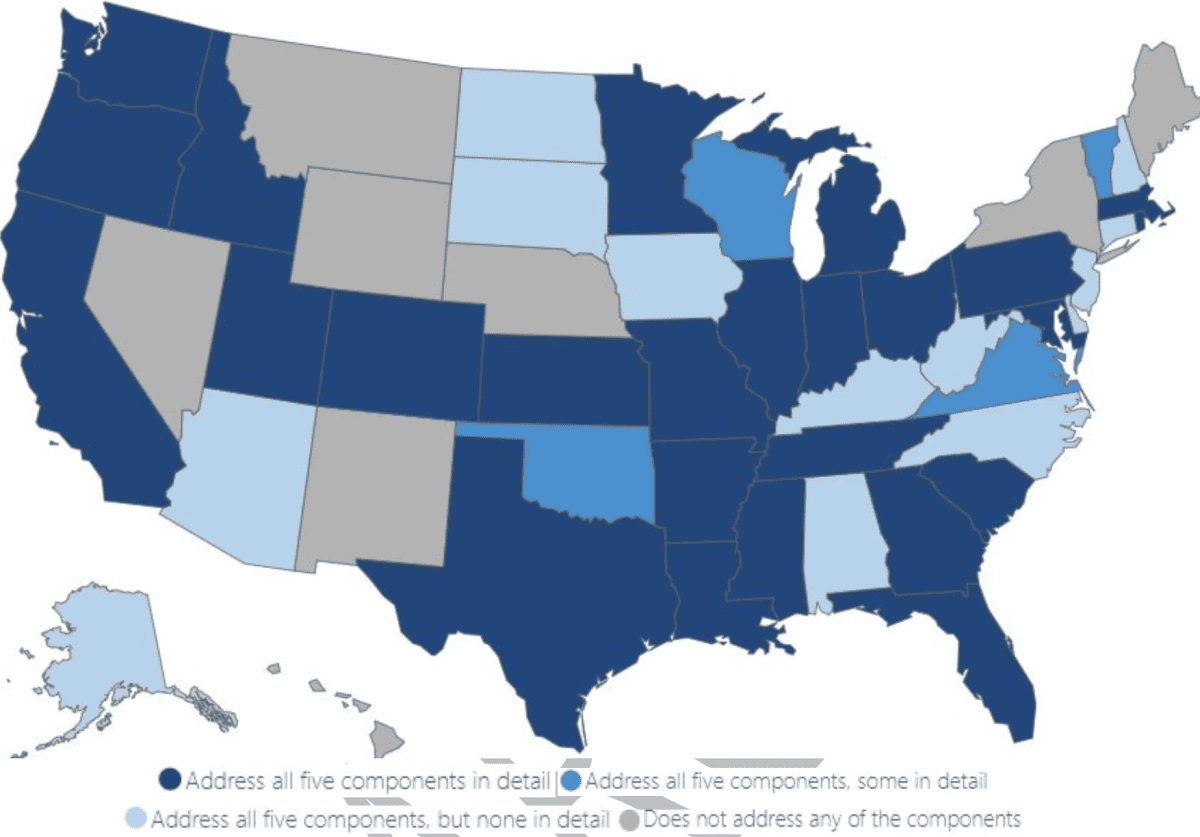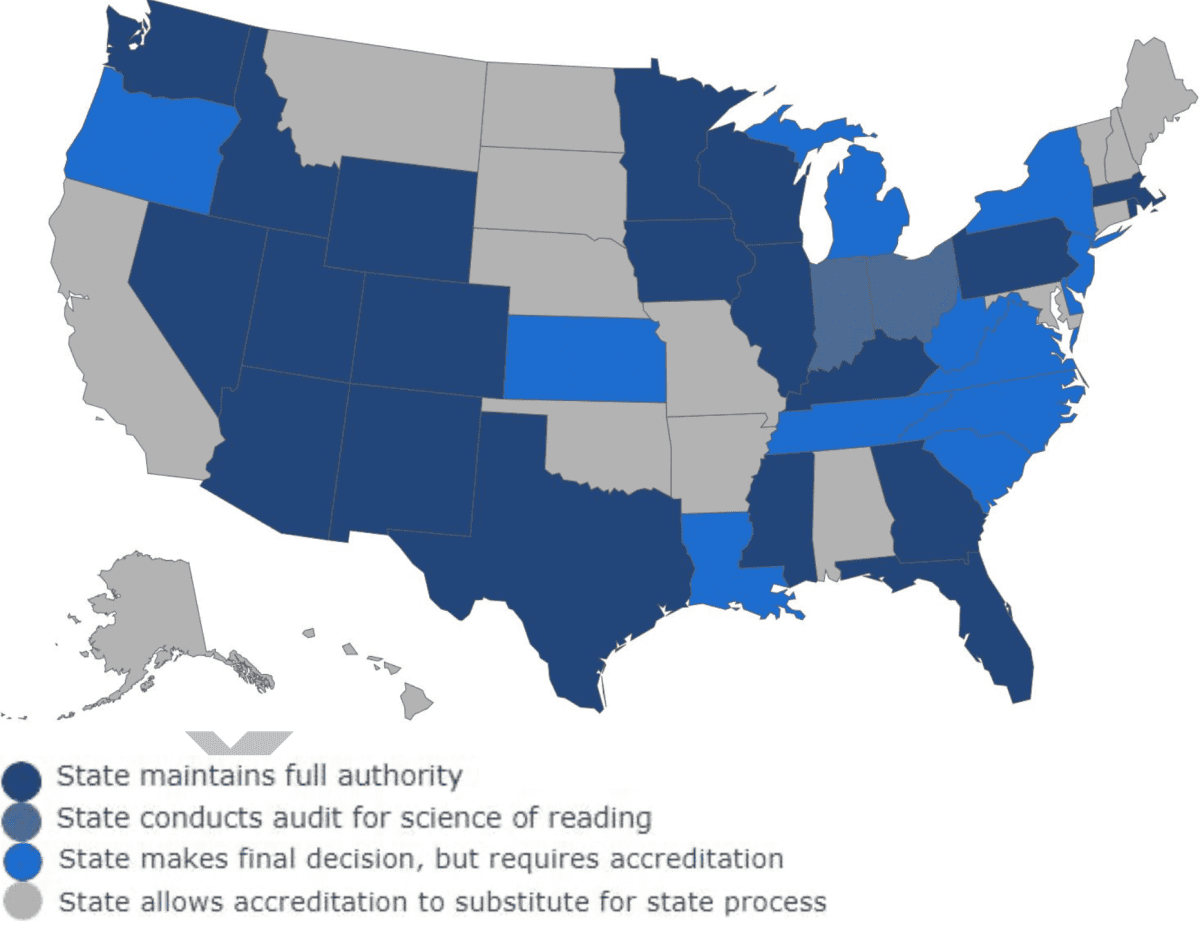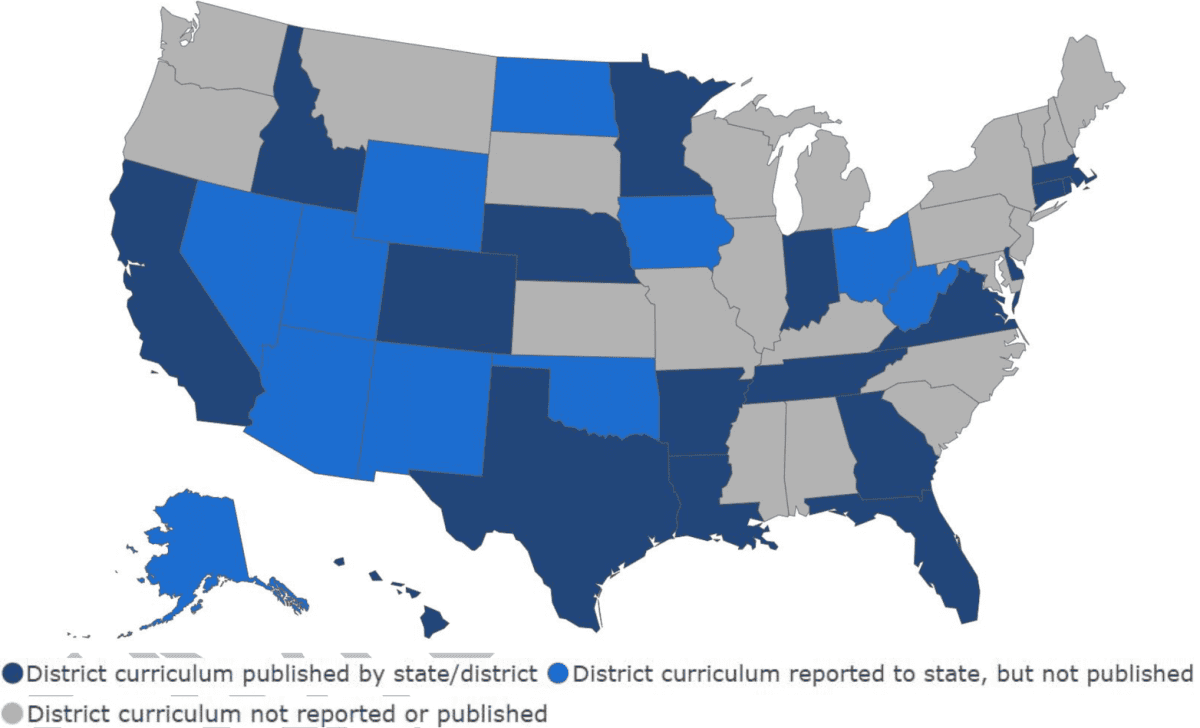Sounding the alarm that 37% of fourth-grade students in the United States (40% in Kansas) cannot read at grade level, the National Council on Teacher Quality (NCTQ) has issued five policy proposals to state lawmakers to improve reading scores by giving teachers the tools to be more successful using the science of reading.
For each of the five proposals, we focus on how NCTQ rates Kansas currently:
#1 – Set specific, detailed reading standards for teacher prep programs that are aligned to the science of reading
- Include how to teach English Learners in the reading standards for teacher prep programs
- Incorporate how to teach struggling readers, including those with dyslexia, in the reading standards for teacher prep programs

The map above shows Kansas teacher preparation programs address each of the five pillars of the science of reading: Phonemic Awareness, Phonics, Fluency, Vocabulary and Comprehension:
However, the state is not effective in training teachers to teach English Learners:

#2 – Conduct program reviews to hold programs accountable for implementing the science of reading
- Maintain full control over program approval processes
- Use multiple sources of evidence to gauge implementation of the science of reading
- Include PK-12 literacy experts as program reviewers
Kansas is among the majority of states that do not maintain full control over the teacher prep program approval process:

#3 – Adopt a strong elementary reading licensure test as a guardrail to ensure new teachers know the science of reading
- Require all elementary teacher candidates to pass a reading licensure test
- Publish reading licensure test pass rate data
Kansas’ reading licensure test is rated as “weak”, and it does not publish the licensure test pass rate


#4 – Require the use of high-quality curricula aligned to the science of reading
- Collect and publish data on curricula districts are using
- Allocate resources to help make the transition to new curricula
- Provide guidance on how to select high-quality curricula that support struggling readers (including students with dyslexia) and English Learners.
Kansas does not require the use of high-quality curricula and has no way to measure the effectiveness of that which is provided


#5 – Require all current elementary teachers to receive high-quality professional learning in scientifically based reading instruction and to demonstrate their learning
- Provide districts with resources to support implementation and sustainability, such as literacy coaches or support networks
- Support professional learning to promote skillful implementation of high-quality reading curricula
- Evaluate results of investments in professional learning
Kansas is among the majority of states that require and fund professional learning in the science of reading. NCTQ rates Kansas overall as “moderate” in its progress on implementing policies and practices to build teacher effectiveness in the science of reading.


The organization summarizes its findings and recommendations:
“If elementary teachers implement scientifically based reading instruction, more than 90% of students can learn to read. But we won’t achieve this goal unless teachers are given the knowledge, skills, instructional materials, and professional learning they need to be successful. State education leaders can play a pivotal role by enacting and/or strengthening existing policies or carrying out promising practices that will help improve reading outcomes for students.”

David Hicks – The Sentinel
David Hicks grew up in southern Missouri and graduated from Mizzou with a degree in political science. He has worked as a congressional staffer, broadcaster, government bureaucrat, columnist, campaign worker, and small business owner. He and his wife live in Bonner Springs.




